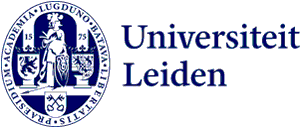
Humanities researchers publish a new journal issue inspired by times of crisis
The ninth issue of the Journal of the LUCAS Graduate Conference has been published. This time the theme is ‘Reinventing Boundaries in Times of Crisis.’
Every two years the LUCAS Graduate Conference is held: a congress in which PhD students and researchers from all over the world get to present their papers and share ideas. Unlike what the title may suggest, the journal is not linked to the conference. While the proceeds of the LUCAS congress were supposed to be combined, this was eventually not possible due to the corona crisis. Therefore, the editorial board decided to create a stand-alone collection, which in terms of theme emphatically refers to the uncertain time in which it was made.
Young talent across borders
'We wanted researchers to think about the times we live in now, without specifically linking the concept of crisis to corona specifically,' states PhD student Nick Tomberge, one of the journal's editors. 'That's why we asked them in how artists have generally dealt with crises in the past and what future perspectives they outlined in their work. Perhaps it is precisely in times of crisis that art is able to break through or shift old boundaries and thus contribute to a more beautiful society.'
This resulted in five articles by young research talent: the authors ranging from postdocs to master's students. 'They have fleshed out the central question in very different ways,' says Tomberge. 'Some have focused on physical boundaries, but it can also be about temporal boundaries or those between different social groups. For example, one researcher focused on a work by the humanist Albrecht Dürer (1471-1528). In his time, the stability of the Holy Roman Empire was threatened by both inside and outside sources. In response to that crisis, Dürer designed a map for the ideal city. Another researcher focused on the forced closure of museums due to the corona crisis. It’s possible to print 3D reproductions of artworks for people at home, which allows museums to keep in touch with their audiences. But this requires a completely different way of dealing with art, because the work loses its material “aura” that way.
Attention for art
Together, the articles provide a cross-section of Humanities, something we desperately need, Tomberge believes. 'We've naturally been seeing a lot of epidemiologists and doctors in the news lately. Subsequently, the Humanities end up a bit overlooked. Because of the theme, this collection points out the importance of Arts, especially in times of crisis. Arts then provide an opening where we can think about how to go about things in the future, while also providing comfort or giving a sense of solidarity while alone at home.'
Editors-in-chief Annachiara Raia and Carmen Van den Bergh are very appreciative of the edition and the hard work put in by the entire editorial staff. According to them, PhD students, postdocs and senior researchers worked together as a close-knit group, using their own experiences and expertise as a starting point. The postdocs jumped in where needed and the PhD students have made great leaps. It's fantastic to see everyone grow so much,' says Annachiara Raia. 'Many thanks to the institute LUCAS as well for making it possible to organise several workshops with professional practitioners, such as an editor and a lay-outer, who guided the editors and helped with the peer review process and formal completion. This has given the issue a very high quality look and feel,' adds Van den Bergh.
The ninth issue of the Journal of the LUCAS Graduate Conference, 'Reinventing Boundaries in Times of Crises', features texts by Bram Caers, Dimitris Kentrotis-Zinelis, Allison Marino, Martine Mussies, Ana Stefanovska and Liselore Tissen. The editors are: Bram Caers, Aafje de Roest, Catherine Powell-Warren, Liselore Tissen, Nick Tomberge in collaboration with chief editors Annachiara Raia and Carmen Van den Bergh and series editor Sara Polak. You can read it online here (open access).
